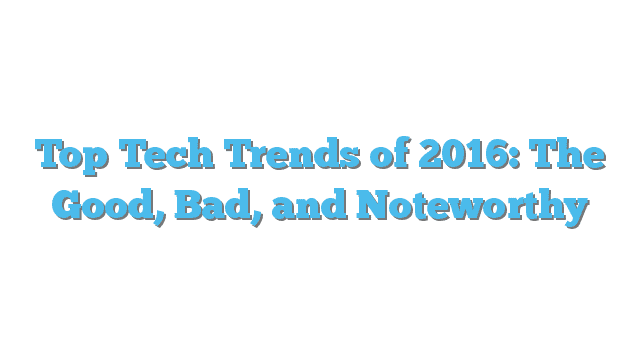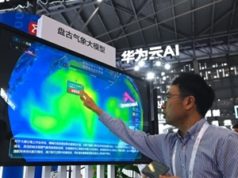Over the course of 2016, businesses, governments and individuals alike saw both new threats and new opportunities emerge as information technologies continued to advance.
One top trend — the growing number of cybersecurity attacks — already causes trillions of dollars in losses, with the damage expected to hit $6 billion by 2021, according to a recent report from Cybersecurity Ventures.
Meanwhile, continued developments in cloud computing along with accelerating advances in machine learning and artificial intelligence (AI) in 2016 increased pressure on organizations to transform for the new digital business era.
Other tech trends that led the news and the markets this year included ongoing improvements in self-driving car technology, more widespread adoption of wearable computing devices and advances in virtual-reality (VR) and augmented-reality technologies.
Cybercrime Getting Worse
Financial fallout and other impacts from cybercrime continued to rise dramatically in 2016, with Russia’s links to pro-Trump hacking dominating headlines in the wake of November’s U.S. presidential election. Other major hacks revealed this year included attacks on Dropbox and Yahoo, the last of which still threatens to deep-six Verizon’s acquisition plans for that company.
The use of ransomware, such as Locky, also intensified. Earlier this month, the security firm Malwarebytes reported that the U.S. in particular was a prime target for such attacks, accounting for 26 percent of all ransomware incidents globally. The growing market for consumer security prompted IT security giant Symantec to announce in November that it was acquiring the identity theft protection firm LifeLock for $2.3 billion.
Artificial Intelligence Getting Smarter
Almost all of the major technology companies made big announcements related to artificial intelligence in 2016. For instance, when Google announced the launch of its new Pixel and Pixel XL Android smartphones in October, CEO Sundar Pichair said the devices’ new built-in smarts heralded the shift from a mobile-first world to one led by AI.
Apple, which recently published its first research paper on AI, said its updated operating system, iOS 10, which came out in the fall, would give its customers new levels of artificial intelligence-enabled computing capabilities.
Over the past 12 months, Microsoft revealed that it would be collaborating with Intel to develop new AI features for customers, Facebook took the wraps off a new deep-learning system called Caffe2Go that can digitize videos in near-real time and Samsung said its next flagship phone would come with a built-in intelligent digital assistant. And in September, a number of companies, including Amazon, Facebook, Google, IBM and Microsoft, launched a new non-profit called the Partnership on Artificial Intelligence to Benefit People and Society.
Self-Driving Cars Advancing
Transportation also continued to get smarter in 2016, with both car makers and technology companies aiming at the market for autonomous vehicles.
Uber generated plenty of headlines over the year, whether it was for acquiring the self-driving truck startup Otto for $680 million in August, or losing its autonomous car testing permit in California after multiple reports about test-related traffic violations. Tesla also sustained a black eye after reports emerged in the summer that one of its customers was killed in a crash while operating its self-driving car technology.
However, autonomous car technologies continued advancing, with new products and acquisition announcements from companies, including AMD, Qualcomm, Google parent company Alphabet, Ford and GM, which early in the year invested $500 million in the ride-sharing app company Lyft.
Cloud Computing Everywhere
The market for cloud-based computing also kept growing in 2016, with the analyst group Gartner Inc. projecting in September that demand for public cloud services alone would expand by more than 17 percent by the end of this year. Cloud adoption was being led by desire for IT modernization, but cost savings, innvation and agility were also reasons for organizations to continue moving to the cloud, according to Gartner.
Among the year’s top cloud announcements: Google’s plan to acquire the API management firm Apigee, revealed in September; a series of new cloud service launches from Salesforce; cloud-based updates from Adobe; a new cloud-first, mobile-first direction for Microsoft’s SharePoint business platform; and several major acquisitions by Oracle aimed at boosting that company’s position in customer relationship management and cloud services.
Converged Infrastructure, Collaboration, VR and More
Other 2016 tech trends included an ongoing shift to converged infrastructure with new announcements from Dell, VCE/EMC, Microsoft and Salesforce; growing collaboration capabilities enabled through new offerings from Google, Facebook, Apple and SAP; new software and hardware for wearables from Huawei, Google and Facebook/Oculus; and an emerging generation of virtual- and augmented-reality technologies from companies ranging from Google and Microsoft to Samsung and Intel.







